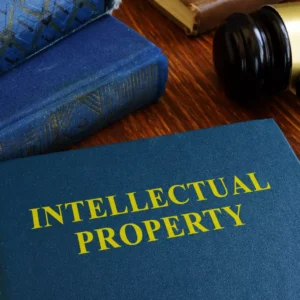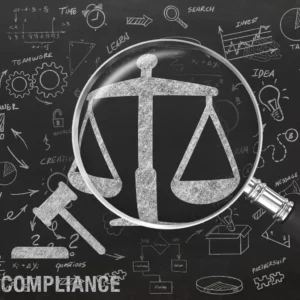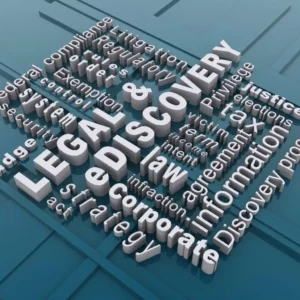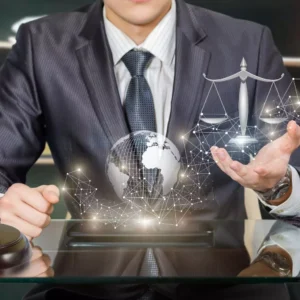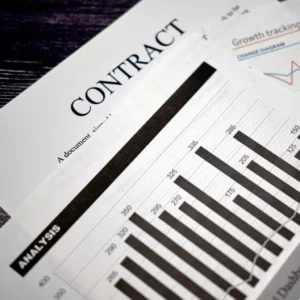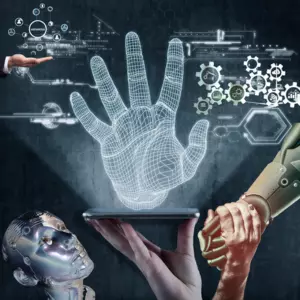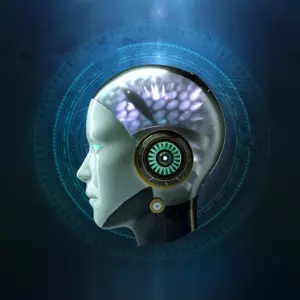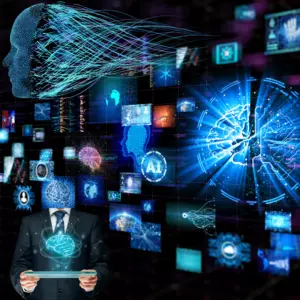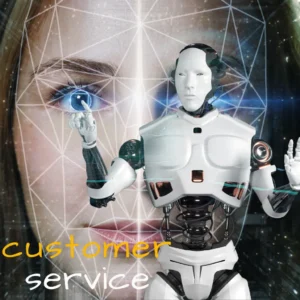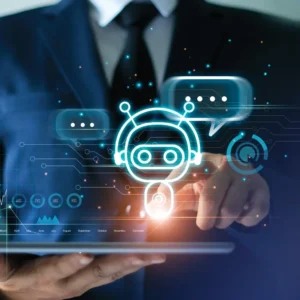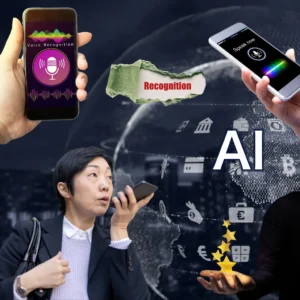
AI-Driven Legal Chatbots
Future of Attorney-Client Interactions
The legal landscape is evolving, and at its helm are AI-driven legal chatbots. These technological marvels are not just tools but pioneering a new age of attorney-client interactions. As the digital era demands swiftness, accuracy, and adaptability, AI rises to the challenge, bringing forth innovations that empower legal professionals and their clientele.
From simplifying the maze of legal jargon through natural language processing to automating routine tasks, the boundaries are continually expanding.
But what does this mean for the traditional attorney-client relationship? How are these chatbots shaping the future of legal interactions? Journey with us as we unpack the myriad ways AI is not just influencing but reshaping the world of law.
Table of Contents
The Rise and Relevance of Legal Chatbots
The legal industry has long been regarded as traditional, often slow to adapt to technological advancements. However, a transformative shift is evident with the dawn of AI-driven legal chatbots. Imagine having a helpful and knowledgeable assistant at your fingertips, ready to assist you with all your legal queries.
That’s precisely what the latest chatbots are offering! Attorneys can now interact with their clients in a whole new way thanks to the introduction of bots equipped with machine learning technology. These revolutionary tools are transforming the legal industry and providing everyone with a more seamless and efficient experience.
Get ready for a new era of seamless and efficient communication! Clients no longer have to wait on lengthy hold times or wade through dense legal jargon. With natural language processing for legal query interpretation, these chatbots can swiftly and accurately answer preliminary questions or concerns.
Furthermore, the convenience continues beyond there. Imagine the ease of having AI in legal appointment scheduling. A simple chat with a bot can streamline appointment bookings, making it hassle-free for the client and the legal firm. This seamless integration extends to AI-enhanced legal advice virtual assistants, which provide a foundation of knowledge to clients while not replacing the depth of human expertise.
Law firms are now reaping the benefits of reduced administrative tasks. AI in routine legal task automation and AI-driven virtual paralegal assistance allows them to focus on complex cases. In contrast, functions like client onboarding are made efficient with AI in client onboarding processes.
Yet, it’s about more than just convenience and efficiency. With AI’s role in legal knowledge dissemination, these chatbots are becoming invaluable in educating the public, breaking down barriers and making legal knowledge more accessible.
With such a monumental shift in how legal firms operate, one must ponder: How will these technologies further redefine the legal landscape in the coming years?
Resolving Client Concerns Effectively
In the age of instant gratification, waiting days or even hours for legal advice can be exasperating. Enter AI-driven legal chatbots. These digital assistants, powered by sophisticated machine learning for client query resolutions, are making waves in the legal industry, offering instantaneous answers and guidance.
Gone are the days when clients sifted through pages of legal documents, struggling to make sense of complex terminologies. With natural language processing for legal query interpretation, chatbots can now comprehend a user’s query, no matter how convoluted, and provide them with a comprehensible response. Whether a client needs a basic understanding of a statute or an explanation of a legal procedure, these chatbots are readily available to assist.
Beyond mere query resolution, these chatbots also play a pivotal role in AI in legal appointment scheduling. With a few interactions, clients can swiftly schedule consultations, ensuring they get the assistance they require when they need it.
Moreover, AI-enhanced legal advice virtual assistants bridge the gap between basic inquiries and the need for expert intervention. While they can’t replace human attorneys, they guide clients in the right direction, ensuring they’re well-informed before seeking deeper consultation.
But with all these advancements, a critical question emerges: If chatbots are this effective in addressing preliminary concerns, how might they evolve to provide even more comprehensive support?
Streamlining Appointment Bookings
The task of scheduling appointments, while seemingly mundane, has historically been a pain point in the legal sector. Traditionally, it involved back-and-forth phone calls, timezone juggling, and the potential for human error. Today, however, AI-driven legal chatbots are rewriting this narrative, optimizing and simplifying the process for clients and legal professionals.
One of the primary tools at the disposal of these chatbots is machine learning for client query resolutions. This feature enables bots to determine the urgency, nature, and specialization required for an appointment, ensuring clients get matched with the appropriate legal advisor. The seamless integration of AI in legal appointment scheduling means clients can instantly choose suitable slots, reschedule, or even cancel appointments without human intervention.
Moreover, the advantages continue beyond sheer convenience. With their natural language processing for legal query interpretation, these chatbots can also prep clients ahead of their meetings. By gauging the crux of a client’s concern, they can offer relevant reading material or advice, ensuring that the client-lawyer meeting is as productive as possible.
Similarly, AI-enhanced legal advice virtual assistants can provide preliminary consultations. For instance, if someone is unsure about the necessity of a legal appointment, a brief interaction with a chatbot might clarify the path ahead.
As the legal world embraces this newfound efficiency, a tantalizing question arises: How might the role of human administrative assistants evolve in an era dominated by AI scheduling systems?
Interpreting Complex Legal Queries
The legal arena is notorious for its intricate jargon and sophisticated concepts. For most clients, posing a legal question is often a foray into the unfamiliar. This is where AI-driven legal chatbots play a revolutionary role, turning complexity into clarity at the click of a button.
At the heart of these chatbots lies natural language processing for legal query interpretation. This technology enables chatbots to break down multi-faceted inquiries into comprehensible components, providing answers in a language clients can understand. Instead of sifting through dense legal documents, clients can now get straightforward answers in real-time.
Yet, these chatbots are more than just dictionary translators. Through machine learning for client query resolutions, they continually learn from every interaction, becoming adept at predicting user needs and refining responses over time. This evolution makes them invaluable assets, especially in AI-enhanced legal advice virtual assistants. AI-powered assistants can now determine if a question needs a human lawyer or can be answered immediately. It’s incredible how technology has advanced to provide us with such intelligent support!
Moreover, these advancements also impact AI in routine legal task automation. As chatbots become proficient at understanding nuanced queries, they can automatically direct tasks, ranging from document searches to case-related research.
The rapid advancement of technology begs the question: Will AI chatbots anticipate client questions before they are asked?
Providing Preliminary Legal Advice Virtually
In an era where convenience is king, the demand for immediate yet accurate legal advice has always remained the same. AI-driven legal chatbots are bridging this gap, offering virtual counsel at the user’s fingertips and reshaping the contours of the attorney-client relationship.
Powered by machine learning for client query resolutions, these chatbots are not just providing run-of-the-mill answers. They analyze past case scenarios and current legal frameworks and continually update their knowledge base. This ensures that the preliminary advice they offer is quick and attuned to the latest legal precedents.
The brilliance of natural language processing for legal query interpretation comes to the fore here. Clients can frame their queries in everyday language, and these virtual assistants will translate them into legal parlance, offering guidance without intimidating jargon. This becomes particularly advantageous when integrated with AI-enhanced legal advice virtual assistants. They can direct clients on the next best steps, be it collecting specific documents, preparing for a particular legal process, or suggesting the necessary legal expertise.
Moreover, this virtual counsel also intertwines seamlessly with AI in legal appointment scheduling. Should a chatbot deduce that a client’s concern requires in-depth human intervention, it can instantly facilitate an appointment with the appropriate attorney.
Yet, as we marvel at these advancements, a pressing query emerges: With such potent virtual preliminary advice, how will this reshape the role and value of in-person legal consultations in the coming years?
Automating Mundane Legal Tasks
Despite its intricate cases and debates, the legal world often needs to catch up on routine, time-consuming tasks. But the horizon is changing, and AI-driven legal chatbots stand at the forefront of this transformation, taking on the mundane to free legal professionals for more critical endeavours.
One of the critical facets of this automation lies in machine learning for client query resolutions. Chatbots reduce lawyers’ time addressing recurrent concerns by predicting and preemptively managing frequently asked questions. This speeds up the resolution process and ensures consistency in the advice given.
The benefits continue beyond just queries. Documents, a staple in the legal world, often require extensive sorting, organizing, and reviewing. Legal processes are streamlined and expedited with AI automation, reducing errors. Similarly, AI-driven virtual paralegal assists in managing tasks like legal research, evidence gathering, and even some aspects of drafting, again emphasizing efficiency without compromising accuracy.
Furthermore, the integration of natural language processing for legal query interpretation aids in quickly deciphering documents, extracting relevant information, and even flagging potential areas of interest or concern. Such capabilities are becoming crucial, especially in significant cases with voluminous documentation.
As these automated systems take on more of the grunt work, a captivating question presents itself: In a future where AI handles the bulk of administrative tasks, how will the role of paralegals and junior attorneys evolve in law firms?
Assisting Lawyers Without Human Intervention
The fast-paced legal world is often synonymous with demanding workloads. Amidst this rush, AI-driven legal chatbots emerge as silent yet powerful allies, offering unparalleled support to lawyers without needing continuous human direction.
A critical area in which these chatbots shine is research. Leveraging machine learning for client query resolutions, they can scour vast databases, pulling up relevant case laws, precedents, and legal literature in moments. This capability accelerates the research process and ensures that no crucial piece of information slips through the cracks.
With natural language processing for legal query interpretation, chatbots can also sift through legal documentation, contracts, and filings, highlighting key terms, potential compliance issues, or areas needing further review. This becomes particularly invaluable during the preliminary stages of a case, allowing attorneys to build a robust foundation.
Furthermore, the realm of AI-driven virtual paralegal assistance is expanding its horizons. Beyond research, virtual paralegals can assist in tasks like drafting essential legal documents, managing case timelines, and predicting outcomes based on historical data.
Coupled with functionalities like AI in client onboarding processes, where chatbots gather initial client data and case details, lawyers can focus on crafting strategies and representing their clients effectively rather than getting mired in administrative details.
With such comprehensive assistance at their fingertips, one must ponder: As AI continues to reduce the manual workload of lawyers, will the future see law firms redefining their staffing models and focusing more on specialized roles?
Making Client Onboarding a Breeze
In the legal world, first impressions are everything. The client onboarding process sets the tone for the entire attorney-client relationship. Traditional methods, laden with paperwork and long wait times, often deter potential clients. Gone are the days of endless paperwork and complicated legal jargon!
Thanks to AI-powered legal chatbots, clients can now easily breeze through the onboarding process. These chatbots use natural language processing to interpret legal inquiries with ease. Clients can input their details, describe their concerns in simple language, and even upload necessary documents – all with the help of a user-friendly chat interface.
Say goodbye to the hassles of legal onboarding and hello to a seamless experience! The chatbot, in turn, translates this information into a structured format, ready for attorney review.
Incorporating machine learning for client query resolutions, these chatbots can also preemptively address common concerns or questions clients might have during onboarding, further streamlining the experience. This proactive approach enhances client satisfaction right from the outset.
Moreover, AI in client onboarding processes continues beyond data collection. These systems can also schedule initial consultations, set reminders for follow-ups, and even direct clients to valuable resources, like AI’s role in legal knowledge dissemination, enhancing their understanding of the legal landscape.
The benefits are twofold. Lawyers receive a comprehensive client profile without wading through hours of initial consultations, and clients feel acknowledged and catered to without unnecessary delays.
But as these automated onboarding processes redefine the beginning of the attorney-client journey, it sparks curiosity: How will this instant, efficient initiation impact long-term client loyalty and trust in their legal representatives?
Disseminating Legal Knowledge Interactively
Legal jargon, case laws, and precedents can be overwhelming for many, often making the pursuit of justice seem daunting. However, AI-driven legal chatbots are stepping in to demystify this landscape, offering interactive avenues to spread legal knowledge to the masses.
These chatbots use natural language processing to simplify complex legal concepts into understandable pieces. Users can ask queries in everyday language and receive answers without intimidating terminologies. This real-time interaction educates and empowers individuals in their legal journey.
Furthermore, the role of machine learning in client query resolutions is paramount. As chatbots encounter a broader array of questions, they continuously learn, refine their responses, and evolve to provide more precise and relevant information. This dynamic, self-improving nature makes them invaluable tools for AI’s role in legal knowledge dissemination.
The interactivity doesn’t end at question-answer sessions. These chatbots, often embedded in AI-enhanced legal advice virtual assistants, can also guide users through virtual legal workshops, simulate real-case scenarios, or even direct them to relevant legal literature or case studies. The aim is not just to inform but to actively engage and elevate the user’s understanding.
As interactive legal education expands, a contemplative question arises: Could the future see a notable shift in public legal literacy rates thanks to these AI-driven platforms?
Redefining Attorney-Client Interactions with AI
The attorney-client relationship is a cornerstone of the legal profession, rooted in trust, understanding, and communication. As AI-driven legal chatbots become prevalent, they’re ushering in a new era for these interactions, marked by enhanced efficiency, responsiveness, and adaptability.
Firstly, immediate response times powered by these chatbots have become the new norm. Gone are the days of waiting anxiously for hours or even days for answers to your legal queries. Thanks to cutting-edge natural language processing technology, chatbots can now provide instant, precise insights or guide you towards the most relevant resources. This saves you time and effort and strengthens the bond of trust between you and your legal advisor.
AI in legal appointment scheduling ensures seamless communication channels. By predicting attorney availability and understanding client preferences, these systems optimize schedules, minimizing wait times and enhancing client satisfaction. Moreover, with machine learning for client query resolutions, chatbots can anticipate and address client concerns before they articulate them, leading to proactive problem-solving.
But beyond mere logistics, AI-enhanced legal advice virtual assistants play a pivotal role in elevating the quality of interactions. By arming lawyers with comprehensive data analysis, predictive insights, and streamlined information, attorneys can focus on crafting compelling legal strategies and genuinely connecting with their clients.
Incorporating AI’s role in legal knowledge dissemination, chatbots also empower clients with knowledge, ensuring they’re not just passive recipients but active participants in their legal journey.
As AI weaves itself into legal interactions, a thought lingers: Will the future attorney-client relationship be a perfect blend of human empathy and AI-driven efficiency?
Conclusion: AI's Transformative Impact on the Legal Realm
In today’s dynamic legal landscape, AI-driven legal chatbots have emerged as powerful catalysts, redefining traditional attorney-client dynamics. These sophisticated tools, armed with natural language processing for legal query interpretation, have made the intricate maze of legal jargon more accessible, bridging the communication gap between lawyers and clients.
These chatbots utilize machine learning to address and anticipate client concerns, providing proactive solutions. The once tedious process of AI in legal appointment scheduling has transformed into a seamless experience, minimizing wait times and optimizing attorney-client interactions.
Furthermore, the efficiency brought about by AI in routine legal task automation allows legal professionals to shift their focus from mundane tasks to offering strategic, impactful advice. The advent of AI-enhanced legal advice virtual assistants ensures that preliminary guidance is always a click away, democratizing legal counsel.
Moreover, these chatbots have excelled in AI’s role in legal knowledge dissemination, ensuring clients are aware of the situation. This interactive mode of imparting knowledge could revolutionize public legal literacy rates.
To answer the lingering questions: The integration of AI in the legal domain is neither replacing the personal touch of human lawyers nor diluting the essence of attorney-client trust. Instead, it’s amplifying it. Through tools like AI-driven virtual paralegal assistance and innovative client onboarding processes, the future of attorney-client interactions promises a blend of AI-driven efficiency and human empathy, forging more robust, more informed partnerships in the legal arena.
Related Articles
- AI in Pro Bono Case Selection: Maximizing Impact
- AI in Alternative Dispute Resolutions: The New Mediator
- AI in Courtroom Support: Revolutionizing Evidence Compilation
- AI-Driven IP Management: From Patents to Trademarks
- AI-Driven Document Categorization: Legal Filing Transformed
- AI in Compliance Monitoring: Legal Standards and Predictive Oversight
- AI-Driven Legal Chatbots: Future of Attorney-Client Interactions
- AI-Driven E-Discovery Platforms: Enhanced Efficiency and Precision
- AI-driven Legal Analytics: Transforming Decision-making and Litigation Strategies
- AI-Driven Legal Research: How Technology is Reshaping the Future of Law
- AI for Contract Analysis: Streamlining Processes and Predicting Success
- Other Articles on AI Usage in Legal
- Other Articles on AI usage in different industries





